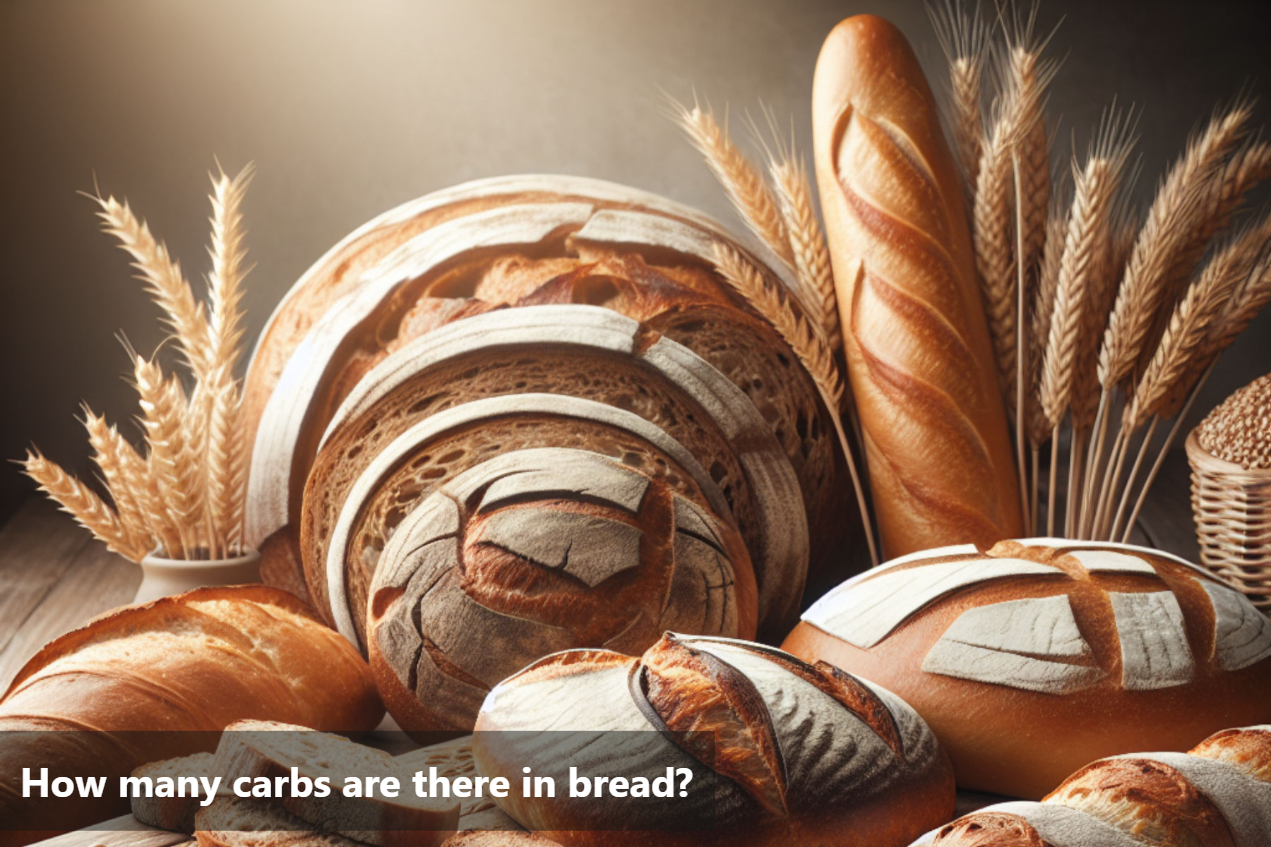
How many carbs are there in bread?
Carbohydrates play a crucial role in our diet, and one common source of carbs is bread. Being aware of the carbohydrate content in bread is essential for making informed dietary choices. Whether you are a health-conscious individual or managing your carb intake, understanding the role of carbs in bread is key.
Carbs in bread refers to the amount of sugars, starches, and fibre present in a slice. Different types of bread vary in their carbohydrate content, which can impact your overall nutrient intake. Some bread options may be higher in carbs due to added sugars or refined flours, while others may offer more fibre and nutrients with lower carbs.
By being mindful of the carbs in each slice of bread you consume, you can better manage your overall carb intake and make healthier choices. Whether you opt for whole wheat, multigrain, or specialty bread, understanding the carbohydrate content can guide you towards options that align with your dietary preferences and health goals.

Counting Carbs: Different types of bread
|
White bread |
Whole-wheat bread |
Sourdough bread |
|---|---|---|---|
Serving size |
1 slice (25 grams) |
1 thin slice (33 grams) |
1 small slice (32 grams) |
Calories |
67 |
92 |
93 |
Total fat |
1 gram |
2 grams |
0.6 grams |
Carbs |
13 grams |
17 grams |
18 grams |
Protein |
2 grams |
3 grams |
4 grams |
Fiber |
0.6 grams |
2 grams |
1 gram |
Thiamine |
8% of the RDI |
7% of the RDI |
9% of the RDI |
Folate |
7% of the RDI |
5% of the RDI |
12% of the RDI |
Sodium |
7% of the RDI |
5% of the RDI |
9% of the RDI |
Manganese |
6% of the RDI |
31% of the RDI |
8% of the RDI |
Selenium |
6% of the RDI |
18% of the RDI |
12% of the RDI |
Riboflavin |
5% of the RDI |
4% of the RDI |
5% of the RDI |
Niacin |
5% of the RDI |
7% of the RDI |
8% of the RDI |
Iron |
5% of the RDI |
6% of the RDI |
6% of the RDI |
In comparison to fruits and vegetables, bread tends to have a less robust nutritional profile. It typically boasts higher calorie and carbohydrate content but is relatively low in essential nutrients such as protein, fat, fibre, as well as essential vitamins and minerals. It's essential to note that the nutritional composition of bread can vary significantly depending on the specific type or variant chosen.
Factors that influence carbohydrate content in bread
When it comes to understanding the carbohydrate content in bread, various factors come into play, impacting the overall nutritional profile of this dietary staple.
- One crucial aspect to consider is the type of ingredients used in the bread-making process. Different types of flour, additives, and preservatives can significantly affect the carbohydrate levels in bread.
- The processing methods employed during baking also play a key role in determining the carb content of bread. For instance, bread that undergoes extensive refining processes may have higher carbohydrate levels compared to less processed varieties.
- Additionally, the presence of added sugars in bread recipes can contribute to an increase in overall carbs per slice.
Opting for whole grain or sourdough bread, which typically undergo less refinement and contain fewer additives, can be a healthier choice for individuals monitoring their carb intake
By understanding the influence of ingredients, processing methods, and added sugars on bread carbohydrates, you can make informed decisions to support your dietary goals and overall well-being. As a consumer, it is essential to be mindful of these factors when selecting bread products.
Tips for choosing bread with lower carbs
When it comes to selecting bread with lower carbohydrate content, there are a few key tips to keep in mind for a healthier choice.
- Firstly, opt for whole grain bread over white bread. Whole grain bread generally contains more fibre and fewer carbs per slice compared to white bread, making it a nutritious choice for those watching their carb intake.
- Another tip is to carefully read the nutrition labels on bread packaging. Look for breads that are labeled as "low-carb" or "reduced carb" as these options are specifically designed to contain fewer carbohydrates per serving.
- Consider exploring alternative bread options such as almond flour bread, coconut flour bread, or flaxseed bread. These varieties are known for their lower carb content and can be a great choice for individuals on a low-carb diet.
- Furthermore, homemade bread can also be a good option for controlling the carb content. By making your own bread at home, you can choose the ingredients and ensure a lower carb count compared to store-bought options.
- Lastly, when choosing bread with lower carbs, focus on the overall quality of the ingredients. Opt for breads that are made with whole, natural ingredients and avoid those with added sugars or high levels of refined carbohydrates.By keeping these tips in mind, you can make informed choices when selecting bread with lower carbohydrate content, contributing to your overall health and dietary goals.

Decoding Carbs: Understanding the Carb Content in Bread
Understanding the carbohydrate content in bread is crucial for making informed dietary choices and achieving overall health goals. By being aware of the carb content in different types of bread, individuals can better manage their carbohydrate intake and make healthier decisions.
Factors such as ingredients, processing methods, and added sugars play a significant role in determining the carbohydrate content of bread. By considering these factors and choosing bread varieties with lower carbs, individuals can effectively regulate their carb consumption and promote better health.
To ensure a lower carb intake, it is advisable to opt for bread products that are whole grain, high in fibre, and free from excessive sugars. Making mindful choices when it comes to bread selection can positively impact one's overall health and support their dietary objectives.
This Blog post is an initiative by Lo! Foods, to provide accurate and Nutritionist / Doctor approved information related to Health. Lo! Foods is India's leading brand for Everyday Functional Foods. Foods designed for specific Health conditions or Needs. Lo! Foods also runs India's largest range of Low Carb Healthy Cloud Kitchens, under the brand names of Lo!, ProteinChef, ATH (All Things Healthy) and DiabeSmart.















Leave a comment
Your email address will not be published.